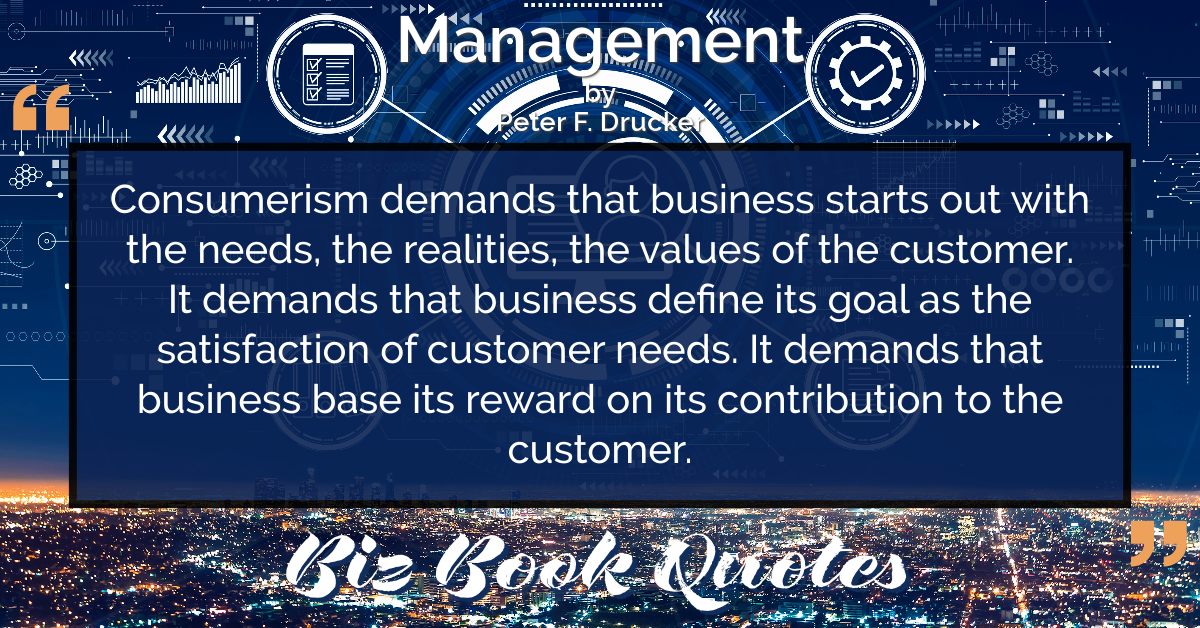|

|
Management:
…a company can make a social contribution only if it is highly profitable.
|
098 |
|

|
Management:
There is only one valid definition of business purpose: to create a customer.
|
098 |
|

|
Management:
What the customer buys and considers value is never a product. It is always a utility, that is, what a product or service does for him.
|
098 |
|

|
Management:
Because its purpose is to create a customer, the business enterprise has two – and only these two – basic functions: marketing and innovation.
|
098 |
|

|
Management:
Consumerism demands that business starts out with the needs, the realities, the values of the customer. It demands that business define its goal as the satisfaction of customer needs. It demands that business base its reward on its contribution to the customer.
|
098 |
|

|
Management:
The aim of marketing is to know and understand the customer so well that the product or service fits him and sells itself.
|
099 |
|

|
Management:
A business enterprise can exist only in an expanding economy, or at least in one that considers change both natural and acceptable. And business is the specific organ of growth, expansion, and change.
|
099 |
|

|
Management:
It is not necessary for a business to grow bigger; but it is necessary that it constantly grow better.
|
099 |
|

|
Management:
The most productive innovation is a different product or service that creates a new potential of satisfaction, rather than an improvement.
|
099 |
|

|
Management:
When managers speak of marketing, they usually mean the organized performance of all selling functions. This is still selling… selling and marketing are antithetical rather than synonymous or even complementary.
|
099 |











